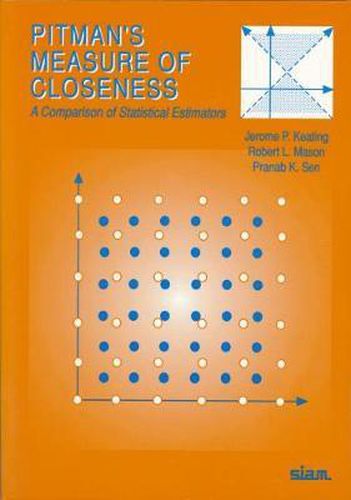Readings Newsletter
Become a Readings Member to make your shopping experience even easier.
Sign in or sign up for free!
You’re not far away from qualifying for FREE standard shipping within Australia
You’ve qualified for FREE standard shipping within Australia
The cart is loading…






Pitman’s Measure of Closeness (PMC) is simply an idea whose time has come. Certainly there are many different ways to estimate unknown parameters, but which method should you use? Posed as an alternative to the concept of mean-squared-error, PMC is based on the probabilities of the closeness of competing estimators to an unknown parameter. Renewed interest in PMC over the last 20 years has motivated the authors to produce this book, which explores this method of comparison and its usefulness. Written with research oriented statisticians and mathematicians in mind, but also considering the needs of graduate students in statistics courses, this book provides a thorough introduction to the methods and known results associated with PMC. Following a foreword by C .R. Rao, the first three chapters focus on basic concepts, history, controversy, paradoxes and examples associated with the PMC criterion.
$9.00 standard shipping within Australia
FREE standard shipping within Australia for orders over $100.00
Express & International shipping calculated at checkout
Pitman’s Measure of Closeness (PMC) is simply an idea whose time has come. Certainly there are many different ways to estimate unknown parameters, but which method should you use? Posed as an alternative to the concept of mean-squared-error, PMC is based on the probabilities of the closeness of competing estimators to an unknown parameter. Renewed interest in PMC over the last 20 years has motivated the authors to produce this book, which explores this method of comparison and its usefulness. Written with research oriented statisticians and mathematicians in mind, but also considering the needs of graduate students in statistics courses, this book provides a thorough introduction to the methods and known results associated with PMC. Following a foreword by C .R. Rao, the first three chapters focus on basic concepts, history, controversy, paradoxes and examples associated with the PMC criterion.